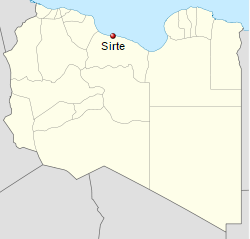
Thomas Hegghammer is a specialist in Islamist terrorism whose research I addressed in The Religious Thrill and Bond of the Islamic State. Hegghammer was interviewed by BillMoyers.com in late 2014 and what he says is still relevant. The interview:
Why Have a Record Number of Westerners Joined the Islamic State?
Of particular interest:
his comparison of the Western volunteers and the local Syrian resistance (he says the Westerners are more ideological and hard-set against compromise than the local fighters)
his analysis of the threat ISIS terrorism poses the West (not as direct as many seem to think)
the difficulty of directly attacking ISIS (ISIS changes tactics to adapt to new threats — e.g. more merging with civilians and guerrilla war)
what might put Westerners at greater risk of ISIS inspired terrorist attacks (the recent Paris shootings and ISIS’s response appear to show ISIS read Hegghammer’s script)
the least-bad options for reducing the power of ISIS . . . .
And that last point segues sadly/depressingly into the next post recently highlighted on J.M. Berger’s IntelWire site:
Exclusive: Obama Refuses to Hit ISIS’s Libyan Capital
— a news report by Nancy A. Youssef.

According to Youssef it appears that ISIS is building up a new “province” of the Caliphate around the city of Sirte in Libya. The U.S. military has been making plans to strike at this new build-up but these have reportedly been put on hold by the Whitehouse. One can understand both perspectives: the military option seems logical, but then again, perhaps Thomas Hegghammer’s words in the previous article are worth serious evaluation.
Hegghammer: I think one alternative would be something more like containment, which basically means you encircle the enemy and cut off its sources of funds and weapons and hope that internal tensions will make it sort of rot from within. That seems like an unattractive option with the Islamic State given all the terrible things it does in the areas it controls. But I think it could be the least bad option. Use military force, for example, to stop the Islamic State near Kurdistan or keep it from expanding, and then target its financial operations — its oil sales, etc. — more systematically, and then use other, more subtle means to make it more difficult for the Islamic State to govern its territories, in the hope that the population eventually turns against them.
But it may be too late for that now that we’ve started bombing its headquarters. I think the important thing now is to create what I call “offramps” — to define circumstances in which the mission can be ended. If we proceed with the Islamic State’s complete destruction as our only goal, then I think it could be a very long war. We need a range of more limited objectives that we can actually reach.
If you enjoyed this post, please consider donating to Vridar. Thanks!

You will get some answers if you read the history of the crusades engaged by pope Urban 2 in 1095.
I studied the crusades some years ago and (Urban only launched one of them) but I learned more about today’s situation from Jason Burke’s history of the origins of Islamic militancy.
Aaarrrghhh!!! If I had a harder head, I’d bang it against the wall.
Just why does Hegghammer think that it would not be a good idea to do all the things he suggests (like targeting ISIS’ financial operations, etc.) AND bomb its headquarters in Libya? I guess he’d say the Allies should not have attacked Berlin and just left the Nazi leadership to rot on their own, maybe with the help of a German populace which was in such an ideal position to turn against them. The Allies could have freed France, Belgium, and Poland, and left Germany itself untouched, “keep it from expanding.” Yeah right, that would have done the trick! If nothing else, it would have given the Nazis more time to really work on their “final solutions”.
Or maybe they could have given Rommel free rein to establish a new Reich in North Africa when the skies over Germany were getting too hot. And imagine that warmonger Eisenhauer wanting to carry D-Day into France when he could have settled for retaking the Channel Islands, a more realistic objective that stood a better chance of being achieved!
In the meantime, what about the further destabilization of Libya which would certainly take place if ISIS is allowed to rage unchecked in that country? And will it be Libya today, Tunisia and Algeria tomorrow? Just what is Obama’s reasoning behind delaying or prohibiting the bombing of Sirte? I can’t believe it’s anything along the lines of what Hegghammer is advocating.
As for his “offramps”, I prefer “escape routes.” Would anybody in the 1940s have advocated leaving the Nazis in control of Germany? Well, at least that’s one way of avoiding “a long war.” Not getting involved in helping the Syrian ‘Arab spring’ at its beginning really worked to keep the conflict short, avoid civil war and crimes against humanity (the latter being one of the UN’s adopted principles), and from producing an upheaval that resulted in one of the most murderous organization ever to emerge and a refugee crisis that is destabilizing the European world—gee, that really worked, didn’t it?
No doubt this expert on Islamist terrorism could explain to us how letting a Libyan Caliphate develop is going to reduce terrorism. When are we going to stop the ludicrous argument that attempting to deal ISIS a crippling blow (instead of a slap on the wrist) is going to result in a flood of recruits that will turn the tide in their favor, the lamest excuse for non-action I can imagine? Has Hegghammer never heard of the axiom that nothing succeeds like success?
Hegghammer’s interview was in 2014 so he was not addressing the Libya situation today. I was the one to draw the two together as something to think about.
If ISIS were an conventional army like Rommel’s then you would have a point. But how do you bomb someone who vanishes among the people you are supposedly wanting to save? It is a classic mistake to to take on today’s war with the same methods that worked so well in the last one.
(Besides, ISIS does not appear to be exactly a monolithic force of single-minded troops all committed to a single ideology and set of interests.)
Hegghammer’s views at the time were based on a wealth of research that coheres with years of extensive research by many others so I think we need to deal with that if we are to seriously debunk his conclusions. It’s also a good idea to be sure we have a pretty good understanding of exactly what is the situation around Sirte before dropping bombs. Just compare Libya and the plight of Libyans today with their condition before “we” decided to drop bombs in support of their would-be liberators. Do you really think banging heads on walls is the best way to deal with the research 😉
Sometimes mass bombing has a habit in situations like these of breeding more living vicious heads for every one we kill.
I am disappointed you have not responded to earlier posts and comments that were addressing some of the very viewpoints you have expressed here earlier, especially after I understood you agreed this was a forum where the issues could be explored. (Of course you are not alone in your views.)
The reason I drew the two together (the 2014 interview and the plans for bombing Sirte today) was because as I reviewed that 2014 interview I was reminded of Hegghammer’s warning that bombing ISIS was in Syria/Iraq would very likely lead to more serious terrorist attacks in the West as a direct consequence. And that’s exactly what we saw with several attacks since then: along with the shouts of God is Great came the cries of vengeance for the bombing of ISIS — among the terrorists themselves, their associates and ISIS. The bombing serves as a great propaganda tool for ISIS’s appeal to Westerners, and Western affiliates or supporters of ISIS are far more dangerous and cruel than “the locals” in Syrian and Iraq. Westerners are a disproportionate number among those doing the beheadings, for example. They are the ones with more of the ideological fanaticism than most Syrians and Iraqis. (The reasons are well understood and the research into this has been discussed several times here now.)
If we want to reduce the propaganda appeal of ISIS in the West then the best ways to do so are to make ISIS look impotent and foolish — as opposed to a martyred victim entering Paradise. Doing “both” — bombing as well as the other — means we have two methods that are acting contrary to each other. One is winning the propaganda war and gradually winding back the material presence and power of ISIS, the other is fanning their propaganda war and drawing in more recruits and supporters lurking among the civilians where they can continue to wear down their enemy ground forces by the same sorts of tactics as guerrillas have always used.
I can understand why some (certainly not all) of the military would opt for the latter option of ongoing warfare for god knows how long.
I’ll just leave couple of examples each from ancient and modern history.
In the cases of the liberation of the Philippines and the atomic bombing of Japan both situations could have been dealt with by blockade; they were not because such things take time and during that time millions would have starved, and in the Philippines been murdered. There was also the sheer expense and the prolonged time, and size of, the forces needed to implement such a strategy. If ‘Coronet’ and ‘Downfall’ had gone ahead (with atomic bombings before the landings!) half a million allied casualties (radiation would double this.) were expected along with millions of Japanese.
Both the Jugurthan War and Quirinius’ campaign in Galatia involved cutting the rebel held areas off with military roads and block houses and other field fortifications and then reducing them one bite at a time.
Contrast the twelve year blockade of Iraq: one million dead children; never mind the rest.
An Associated Press update on ISIS in Libya: Libya becoming new front in fight against ISIS
The article informs us of a recent U.S. bombing of an ISIS training camp.
ISIS has been causing a few headaches:
But ISIS has had limited success:
So has turned more of its focus on recruiting foreign fighters:
The article then describes the horrible confusion and complexity of the current “civil war” in Libya and indicates that some factions would welcome a sustained campaign of Western bombing primarily to further their own factional interests — and that such bombing would have less impact on restoring order to Libya or ending the presence of ISIS.
Article further describes the dramatic fall in oil revenue in Libya and further problems for ISIS attempting to gain a serious foothold there.
Concludes with comments from some anonymous ISIS figures that the foreigners being recruited to their ranks are largely useless — unskilled and undisciplined.
And more recent analysis:
Here are America’s five best options for Syria. They’re all terrible. (Daniel Byman)
How the Kurds Became Syria’s New Power Brokers (Amberin Zaman)
Stephen Kinzer is worth reading, the latest:
https://www.bostonglobe.com/opinion/2016/02/18/the-media-are-misleading-public-syria/8YB75otYirPzUCnlwaVtcK/story.html
The Levant Report: http://levantreport.com/
The Scott Horton Show has lots of great podcasts on Syria. (And other FoPo subjects, just avoid the economics ones)